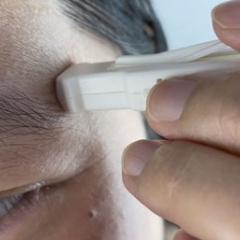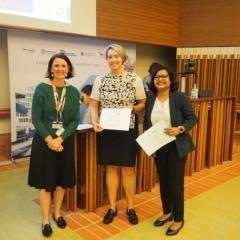 University of Queensland research targeting melanoma diagnosis has been awarded a research grant from the State Government’s Advance Queensland Innovations Partnerships scheme.
University of Queensland research targeting melanoma diagnosis has been awarded a research grant from the State Government’s Advance Queensland Innovations Partnerships scheme.
Dr Mitchell Stark, from UQDI Dermatology Research Centre, will use his $120,000 grant towards the development of a melanoma biomarker toolkit for the purposes of a rapid, cost effective, complimentary diagnostic tool to routine histopathology services. At the other end of the spectrum, the panel will be developed to monitor disease progression of late stage patients being treated with advanced therapies.
Together with Professor Nicholas Hayward, QIMR Berghofer, and Sullivan Nicolaides Pathology, he is working to establish that miRNAs can be used as a sensitive and specific detector of melanoma in a clinical setting.
“Early melanoma diagnosis is the best and most cost effective method to prevent the spread of melanoma, but the diagnosis of malignancy is not absolute,” Dr Stark said.
In particular, by looking for these biomarkers in the blood, the test could improve diagnosis where there is disagreement on the histopathology resulting from biopsies.
For patients, the kit is minimally-invasive, requiring only a small drawing of blood to acquire a sufficient sample size and not significantly adding to the burden of diagnosis or treatment.
The toolkit also shows promise in assessing the progression of the disease with advanced therapies in patients with Stage IV melanoma.
“Current data indicates that our biomarker panel represents an improvement over currently available melanoma diagnostics.” Dr Stark said.
“This proposal will further expand our study to assess the full potential of the microRNA biomarker panel from early diagnosis through to monitoring of progressive disease.”
The project receives funding from Queensland Government’s Advanced Queensland Innovation Partnership, together with The University of Queensland, QIMR Berghofer Medical Research Institute, and Sullivan Nicolaides Pathology.
Media: Dr Mitchell Stark, m.stark@uq.edu.au



